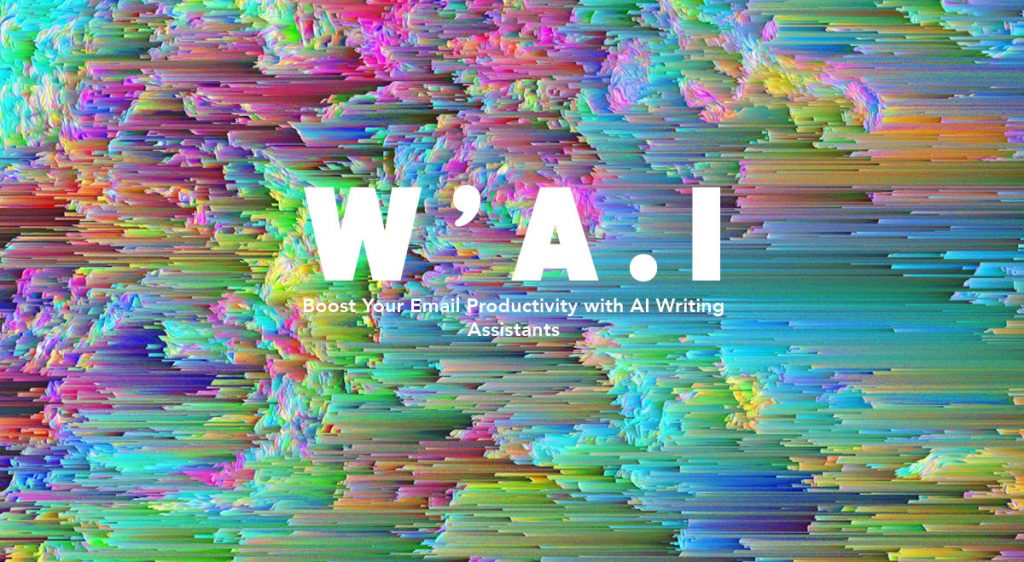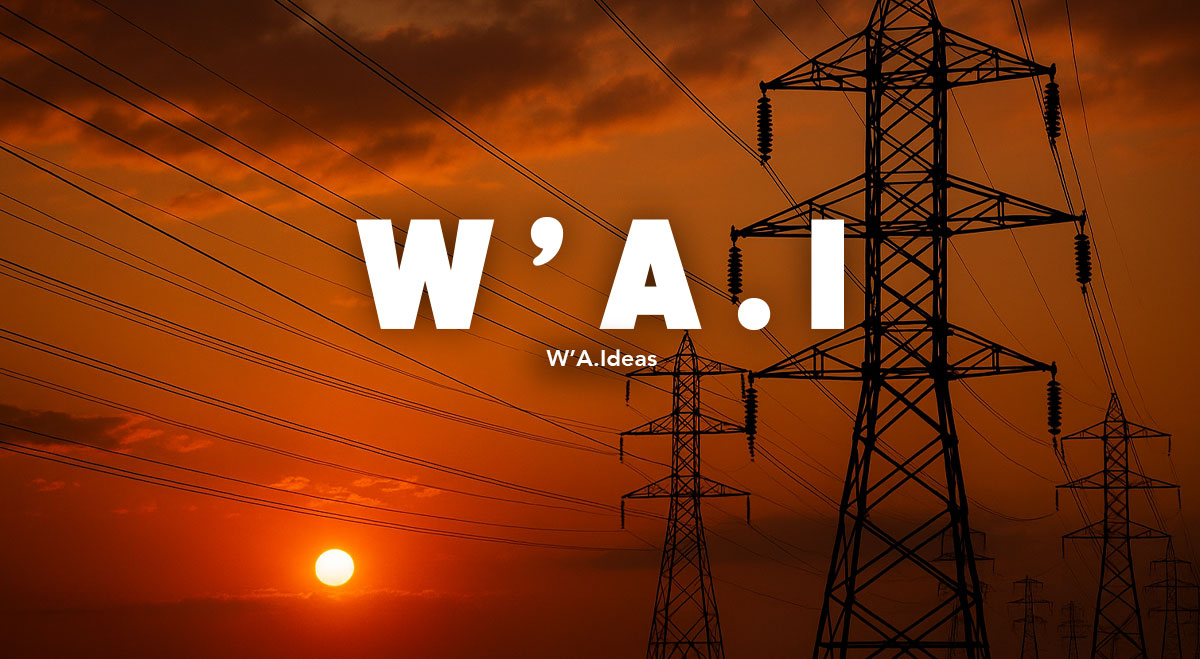Boost Your Email Productivity with AI Writing Assistants
Email has become an indispensable communication tool for businesses and professionals. However, managing high email volume can be highly time-consuming and stressful. AI writing assistants provide a solution by automating email drafting and improving email quality. This article will explore how AI email assistants can boost productivity for busy professionals.
The Need for AI in Email Writing
Email overload has become a significant challenge. According to a recent Radicati Group report, the average business user sends and receives up to 122 daily emails. With such high volumes, professionals struggle to handle their inboxes efficiently.
Poorly written emails also waste time and reflect poorly on the sender. An AI assistant can help compose straightforward, concise, and error-free emails that leave a professional impression.

Key Benefits of Using an AI Assistant for Email
AI tools like W’AI provide the following benefits for email writing:
1. Save Time Drafting Responses
Manually crafting emails from scratch is time-consuming. Professionals can generate quality responses in seconds rather than minutes with an AI assistant.
2. Improve Email Clarity
AI helps compose emails that get straight to the point. AI avoids miscommunication by summarising long messages and suggesting clear calls to action.
3. Reduce Errors
AI writing tools proofread emails and fix grammar, spelling, and stylistic errors that are easily overlooked when writing manually. This polishes the quality of outgoing messages.
4. Standardise Tone
AI assistants allow professionals to maintain a consistent tone and voice across all email communications. This strengthens brand identity.
5. Increase Productivity
With AI automating mundane email tasks, professionals can devote time to high-value priorities. This boosts work output and efficiency.
Everyday Email Tasks Made Easier with AI
Professionals can use AI email assistants for various common scenarios:
Scheduling Meetings
AI helps compose emails to set meeting times and dates. It ensures optimal clarity on the meeting’s purpose, proposed schedule, and logistics.
Example prompt:
You are an [insert job title]. Compose an email to schedule a meeting with [name] to discuss [the goal of the discussion]. Ask them when they’re free, and keep the email short.
Following Up with Leads
AI tools can generate effective follow-up messages, recapping key benefits and persuasive calls-to-action to convert leads.
Example prompt:
I’m the [work position] from [company] specialising in [product or service]. Write a persuasive follow-up email to [name] from [company name] who expressed interest in our services during [event where you met]. Highlight the benefits we offer, such as [list benefits]. Keep it under 150 words.
Requesting Information
AI assistants craft explicit, concise emails to request information or materials from colleagues and stakeholders.
Example prompt:
Draft an email to a colleague asking for [information or action] for the goal of [give the purpose of your request].
Providing Project Updates
For status reports, AI composes well-structured emails outlining completed tasks, upcoming milestones, and potential issues.
Example prompt:
Create an email updating [person or group of people] on the status of [project], including [list completed tasks, upcoming milestones, and any challenges encountered].
Summarising Lengthy Emails
AI summarizes key details from long emails into digestible bullet points. This prevents overlooking important information.
Example prompt:
Summarise the below email into bullet points that I can quickly undertant. Detail exactly what is needed for and suggest a range of replies for a smoooth process.
Invoicing and Payment Reminders
AI helps compose polite payment reminders and invoice attachments. It ensures timeliness and professionalism.
Example prompt:
Write an email to [client’s name], attaching their invoice for [your service] for the total amount of [cost of services] and kindly reminding them the due date for payment is [enter date].
Apologising to Customers
AI generates empathetic apologies for customer service and offers resolutions like discounts or gifts to defuse tensions.
Example prompt:
As a [job title] at [company name], address a customer frustrated about [reason for their frustration]. Write a 100-word apology email offering [a discount, free delivery, gift card, etc].
Requesting Referrals
AI can compose persuasive emails asking satisfied clients for referrals or testimonials to help grow your business.
Example prompt:
Compose an email to a satisfied client asking if they would be willing to provide a testimonial for our website or refer us to their contacts.
Declining Invitations
When unable to attend events, AI helps craft respectful regrets, expressing gratitude for the invitation.
Example prompt:
Draft a polite and professional email to decline [the purpose of the invitation], expressing gratitude for the opportunity and explaining you can’t make it due to [reason you’re unavailable].
Job Applications
AI composes compelling job application emails that make candidates stand out from the competition.
Example prompt:
Compose a job application email for the position of [job title] at [company name], showing enthusiasm for the role and the company, and an attachment of your resume. Maintain a professional and engaging tone, addressing the email to the hiring manager by [name of hiring manager] and including a call-to-action to schedule an interview.
Crafting Effective AI Writing Prompts
To leverage AI for email, professionals need to provide effective prompts. Here are some tips:
- Provide enough context so the AI understands the situation and objectives.
- Be specific regarding the desired email format, tone, length and audience.
- Include important specifics like names, dates, and locations.
- Use concise, unambiguous language and clear instructions.
- Specify if you want summaries, calls-to-action, attachments, etc.
Taking the time to craft excellent prompts will result in better AI-generated emails.
Integrating an AI Assistant into Your Email Workflow
To fully benefit from an AI writing assistant:
- Use a dedicated email integration like Grammarly rather than a separate website. This allows seamless access from your inbox.
- Review AI drafts before sending them, as they may sometimes miss the mark. Refine and customise the AI’s work as needed.
- Start with more straightforward tasks like scheduling or summaries before attempting complex persuasive emails.
- Provide feedback to the AI when results are subpar so the algorithm keeps improving.
Key Takeaways on AI Email Assistants
- Email overload is hurting productivity for many professionals.
- AI writing assistants like W’AI help draft quality emails quickly.
- AI improves email clarity, reduces errors, standardises tone, and increases output.
- Effective prompts are vital to guiding AI to generate your desired email content.
- Integrating an AI assistant directly into your email workflow boosts productivity.
Adopting an AI email assistant can transform how professionals handle their inboxes and communications. The right AI tool lets you work smarter by automating tedious writing tasks. With AI empowering your email efforts, you can focus on high-value priorities and objectives.
For more information on how the power of AI can transform your business contact W’A.I.







